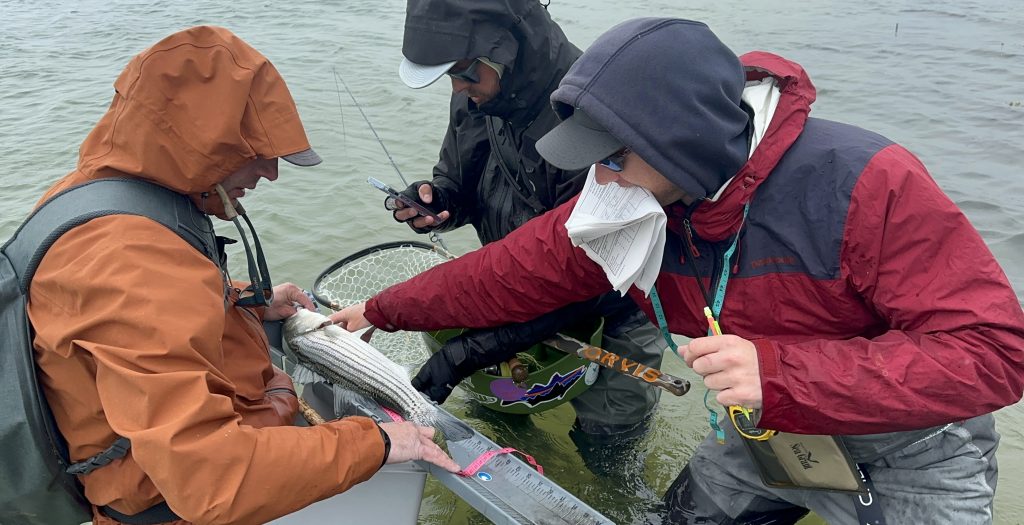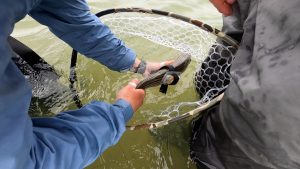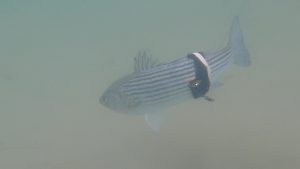Recreational Anglers Get Hooked on Striped Bass Research

Catch and release is a popular fishing technique used by some anglers to keep the fish population sustainable. But what happens to the fish after it has been released?

An accelerometer is attached to a striped bass. A fishing line is attached to one end of the instrument so it can be retrieved as it slides off the fish.
A study funded by WHOI Sea Grant, led by Dr. Andy Danylchuk and his lab at the University of Massachusetts Amherst aims to fill an important gap in knowledge about the fate of striped bass that are released in the recreational fishery in Massachusetts.
As part of this effort, in May Danylchuk’s research team partnered with the Cheeky Schoolie Tournament, the largest fly fishing tournament in the world, to collect data about how striped bass respond to capture and handling. During the tournament, a day-long event held on Cape Cod, teams of two anglers caught striped bass, photographed them, and then released them. When anglers reeled in a fish, they measured the length to enter in the tournament. The fishermen then handed the bass over to Danylchuk’s team to collect measurements for their research. The scientists tested a tool called an accelerometer, which captures how fast a fish swims off once released.
For the conservation-minded tournament organizers, proper fish handling during a release is of paramount importance. The partnership with Danylchuk’s research effort provides an opportunity for everyone to learn more about best practices for catching and releasing fish, while assisting in the research. Tournament participants were also encouraged to take a survey that is aimed at understanding their perceptions of threats to striped bass stocks.
For Danylchuk and his team, the overall research goals are to quantify the short-term activity patterns, behavior, and mortality of striped bass across a range of angling techniques, environmental settings, and life history stages. The research works closely with the recreational striped bass fishery, using a ‘research angler’ approach that involves the direct collaboration with anglers, fishing guides, recreational angling associations, and the fishing industry.
Collectively, this partnership will build capacity for future engagement with anglers and create a broad network for sharing the results of the UMass Amherst study as they emerge.

